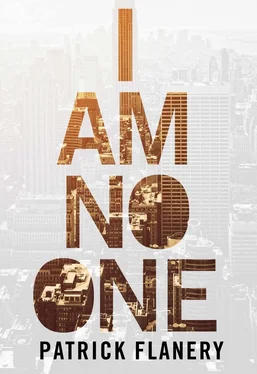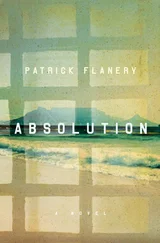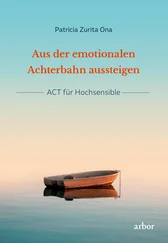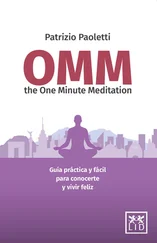‘Can I offer you something to drink?’
‘Peppermint tea?’
‘Nothing harder?’
‘No, Jeremy. Just the tea.’
‘How’s the work? Have you looked into visiting the Fassbinder Archive?’
‘I’ve been rather busy so, no, I haven’t been able to think about the Fassbinder Archive or anything else for that matter. Not yet. Maybe this summer. Berlin is best in summer, when one can swim.’
‘As long as you get there sometime this year you’ll be fine. Honey?’
‘No, just as it comes.’
We sat as we had on all our previous meetings in my house, I in the chair, Fadia on the couch, though she had kicked off her shoes and curled her feet under her. I sensed this was to be a different kind of evening but did not, at that moment, have any notion what was coming. We sipped our tea in silence and it felt like an hour passed, though it can only have been a few minutes at most. I think I said nothing, waiting for her to take the lead. It does not flatter me, but I admit to wondering whether we might again retire to my bedroom, although I also feared she was going to rebuke me for some failing, or thought perhaps she had come to clarify the nature of our relationship.
‘I have something to tell you, Jeremy.’
‘You don’t sound very happy about it.’
‘I don’t exactly know what I feel. . Je ne sais plus. Je suis confuse .’
Perhaps, I thought, she wanted me to meet her parents.
‘Has someone said something?’ I asked, fearing a friend of hers or colleague of mine might have suggested they knew about our liaison.
‘Of course not. But — I don’t want you to argue when you hear what I have to say.’
‘I can’t imagine wanting to argue with you.’
‘I don’t want you to convince me it’s anything other than what I know it to be.’
‘You’re being so mysterious.’
‘No, I just want to lay the groundwork. You’re not to argue or ask questions that throw doubt on what I tell you.’
‘I accept that.’
As she took another sip of tea I noticed her lips against the rim of the white mug and thought, not for the first time, what it might be like to enmesh myself in her life, to meet her parents, who were not much older than me, eventually to meet her brother, unless he was, in fact, the fundamentalist Fadia feared he might be, in which case. . in which case I knew not what. I contemplated what it would mean to my own life, to my career, my livelihood, and the life of my mother and daughter and even my ex-wife, if I came to be known as the professor who had married a student who happened to be the sister of a terrorist and the daughter of a despot’s crony. What would it mean to divorce myself from the life I had known, even the strange life I had adopted in Oxford, and to marry into a life of utter foreignness, and one divided on itself? It would mean, I thought, being stopped at borders, finding that trips by plane suddenly acquired new complexities, perhaps even being placed under forms of surveillance both visible and invisible by the security services of any number of governments, not just British and American, but also Egyptian and Israeli. I sensed Fadia looking away, as if she could not quite bear to maintain eye contact with me. Who knew what else loving her might mean? I knew nothing of her culture or country, almost nothing about her life up to the point she had become my student, and still I knew scarcely more than that which concerned her academic progress and daily habits, when she rose and slept, that she went to the pool on Iffley Road, how she always dressed as a woman of maturity and style.
I cannot say whether this, now, this situation in which I find myself, writing these pages, is the stage preparatory to a more serious set of consequences for the way my life has been drawn into the lives of Fadia’s family. Do I force myself to write this account because I slept with a woman innocent in her own right but implicated by relation and association? I do not have an answer. I write and write, and, I have no doubt, someone at some point will read these pages, reach a judgment, and perhaps, if they find against me, seek to impose some form of punishment — against my person if I am still alive, against my legacy if I am dead. I have come now to expect, in the course of the last week — is it only a week? have I written so much in a matter of days? how much in fact have I written? I count the pages, my handwriting is large, there are three hundred sheets at least but I cannot guess how many words — that I await a consequence which may never come, that I may go on writing this account of my innocence and see it sit unread until such time as I place myself more unambiguously on the wrong side of the law, or until someone, perhaps Stephen Jahn, informs on me in such a way that the authorities have no choice but to take action. Stephen has all the qualities of an informer. I know the type. Are the doormen to be trusted? The woman who comes to clean my apartment? My daughter, my son-in-law, my ex-wife and mother? Is it possible that any one among them is an informer?
Despite that initial formulation of my misgivings, as I sat there in my Oxford home with Fadia, I also felt a kindling of will , a new desire to accept the opening, the further step of establishment, which I had convinced myself Fadia was about to offer.
‘I missed my period,’ she said in an unemotional way. ‘I bought a test kit, one of those horrible plastic things, and then I went to a doctor at a clinic in Reading. I couldn’t go to the College doctor, and I didn’t want to risk a clinic in Oxford or London in case someone saw me. The doctor in Reading confirmed it. It’s still early, but there’s no doubt. Do you understand?’
The sudden fillip of joy I felt in my chest seemed out of synch with her tone. There was no smile on her face, no great happiness. What had happened was a complication in her plans, I understood that much, and one requiring more than the usual care to negotiate. I wanted to handle it correctly, to make right what I had made wrong in the first place. We had used protection, but these things happen. Meredith, in fact, had been conceived under similar circumstances. I understood that Fadia did not want me to question her assumption of my paternity. She was not, I believed, the kind of woman who had many partners. Certainly I had seen no evidence of other romantic entanglements.
‘So what does this mean? I don’t want to presume a greater role than you’d like me to take.’
‘I wanted to ask what you think. That’s why I’m here. If it were straightforward in my own mind, one way or another, then, forgive me, I might have chosen not to involve you, depending on the decision of course.’
‘Is it rude of me to ask if you want to keep it?’
‘Yes, I suppose it is rude in a way, but I appreciate the frankness. The answer is that I don’t know. I haven’t decided. I wasn’t planning on having a child now, but I do want children, it’s just that I imagined having children with a husband and being a few years older, maybe even a decade older, after I’d had time to establish my career and do a little more living.’
‘We could get married.’
She smiled, indulging me for a moment. ‘The fact is, as much as I like you, Jeremy, and as much as I find you attractive, and I don’t regret what happened between us, I can’t imagine being married to you. I hope that doesn’t offend you too much.’
Of course I was disappointed, but I tried not to show it. ‘The age difference, for one, and I suppose — I mean, we come from very different places. The cultural gulf. .’
‘Yes, those things would be difficult. My father, and my brother, if he ever comes back into my life, it would be impossible for them to understand, even though my father has always been quite secular. When I was little it felt like he was spending more time drinking and playing squash at the Gezira Club than he did at work. He is very liberal in many ways, I mean in the way he lives his life, not in what he believes, and on this point he would not be understanding, I feel certain. Even my mother would be difficult.’
Читать дальше












